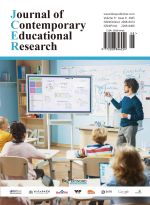A Practical Study on the Construction of “Dual-Qualified” Teacher Teams in Vocational Undergraduate Education Empowered by Digital Technology
Abstract
While the digital transformation brings new development opportunities to the field of vocational education, it also makes it face unprecedented challenges. In order to adapt to the trend of digital transformation, vocational undergraduate colleges need to improve their school-running level and promote educational reform by building “dual-qualified” teacher teams. Based on this, the author first analyzes the construction requirements of “dual-qualified” teacher teams and the common problems in specific operations, such as the weak practical teaching ability of full-time teachers, the imperfect teacher growth mechanism, and the insufficient in-depth school-enterprise cooperation. Then, aiming at the actual problems, it discusses the advantages and practical paths of building “dual-qualified” teacher teams in vocational undergraduate education empowered by digital technology, aiming to provide suggestions for the high-quality development of vocational education.
References
Romanova H, Petrenko L, Romanov L, et al., 2022, Digital Technologies as a Driver of Professional Development of Teachers of Vocational Education Establishments. Education and Upbringing of Youth in New Realities: Perspectives and Challenges, Youth Voice Journal, 2022(4): 67–80.
Ong Q, Annamalai N, 2024, Technological Pedagogical Content Knowledge for Twenty-First Century Learning Skills: The Game Changer for Teachers of Industrial Revolution 5.0. Education and Information Technologies, 29(2): 1939–1980.
Matsumoto-Royo K, Ramírez-Montoya M, Conget P, 2021, Opportunities to Develop Lifelong Learning Tendencies in Practice-Based Teacher Education: Getting Ready for Education 4.0. Future Internet, 13(11): 292.
Huang J, Chen L, Zhang X, et al., 2025, From Policy Texts to Teaching Settings: Decoding the Growth Paradigm and Practical Landscape of Dual-Qualified Teachers. Copyright Statement, 1(1): 70–92.
Li J, Schmees J, Tang H, et al., 2024, Tertiarization and Academization of Vocational Education and Training in China and Germany. International Journal of Training Research, 22(1): 46–65.
Boeve-de Pauw J, Olsson D, Berglund T, et al., 2022, Teachers’ ESD Self-Efficacy and Practices: A Longitudinal Study on the Impact of Teacher Professional Development. Environmental Education Research, 28(6): 867–885.
Batiste H, Benson W, Garcia C, 2023, I Am Not Worthy: How Interpersonal Experiences Influence Perceived Value and Worth of Full- and Part-Time Faculty. Management in Education, 37(4): 169–177.
Almutairi T, Shraid N, 2021, Teacher Evaluation by Different Internal Evaluators: Head of Departments, Teachers Themselves, Peers and Students. International Journal of Evaluation and Research in Education, 10(2): 588–596.
Smith C, Gillespie M, 2023, Research on Professional Development and Teacher Change: Implications for Adult Basic Education. Review of Adult Learning and Literacy, 7: 205–244. Routledge.
Pisriwati S, Hardi Y, Siswanto D, 2024, Enhancing Organizational Development through Principal Leadership to Improve Teacher and Staff Work Discipline. Journal of Organizational and Human Resource Development Strategies, 1(1): 52–62.
Hou Z, 2024, Construction and Implementation Path of Quality Evaluation System for “Double-Qualified” Teachers in Higher Vocational Colleges under the Background of Digital Transformation. Hunan Education (C Edition), 2024(3): 61–64.
Asgar A, Satyanarayana R, 2021, An Evaluation of Faculty Development Programme on the Design and Development of Self-Learning Materials for Open Distance Learning. Asian Association of Open Universities Journal, 16(1): 98–115.
Kassymova G, Tulepova S, Bekturova M, 2023, Perceptions of Digital Competence in Learning and Teaching English in the Context of Online Education. Contemporary Educational Technology, 15(1): ep396.
Engeness I, 2021, Developing Teachers’ Digital Identity: Towards the Pedagogic Design Principles of Digital Environments to Enhance Students’ Learning in the 21st Century. European Journal of Teacher Education, 44(1): 96–114.
Wu Z, Xi M, 2025, Research on the Influencing Factors of Information-Based Teaching Ability of “Double-Qualified” Team Teachers in Vocational Colleges: A Multiple Chain Mediation Analysis of Scientific Research Ability and Teaching and Research Ability. Vocational and Technical Education, 46(12): 59–66.

